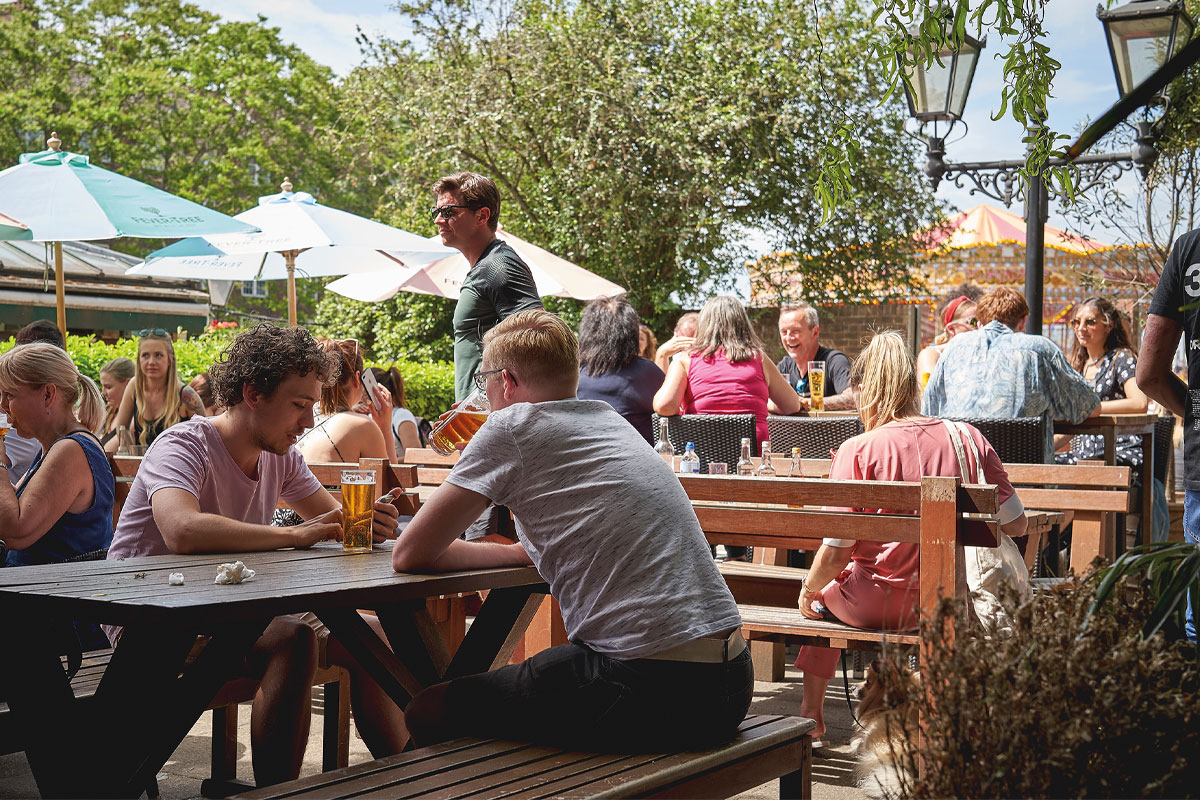Operating an unlicensed outdoor area could prove very risky

CAN property in private ownership be a “public place” when it comes to licensing?
That’s the intriguing question posed by a member of a private club, warned that consuming alcohol in the club’s grounds would breach a local “drinking in public” byelaw.
It comes on the heels of a case I discussed last month: a perplexed bowling club secretary discovered that only the clubhouse was licensed and there was no permission for drinking in or around the bowling green or elsewhere within the club’s grounds.
It’s an area of the law that caused considerable grief when businesses were applying to “convert” licences ahead of the Licensing (Scotland) Act 2005 going live.
A fair number operated unlicensed beer gardens on the basis that a hotel or public house licence automatically allowed off-sales; and alcohol purchased indoors could be taken into an outside area for consumption.
As for members’ clubs, they were entering the mainstream licensing system for the first time and the operation of external drinking spaces posed novel challenges.
During this transitional period many licensing boards took the view that ‘outside drinking’ required to be authorised as an “activity” in the premises licence operating plan. No doubt there was also a view that local ‘public drinking’ byelaws might be breached, even where outdoor alcohol consumption took place in the grounds of a pub or hotel, as distinct from a public pavement.
For operators in some parts of the country this created a major headache where the additional capacity resulted in a toilet accommodation deficit.
Most local authorities have in place byelaws banning the possession of alcohol in an open container or the consumption of alcohol in a designated public place: that is to say, a place “to which the public have access”. (The actual wording varies from area to area, as does the geographical coverage.)
The policy intention is clear: alcohol consumption in open public spaces has real potential to cause antisocial behaviour – and every summer newspapers carry reports of drinks parties in parks or on beaches causing mayhem and mass arrests.
But is a supervised beer garden associated with licensed premises a “public place”?
First of all, let’s look at premises other than private members’ clubs, to which I’ll return in a moment.
A licence holder may, of course, choose to prohibit admission and refuse service as he or she pleases, save where they are prohibited from doing so on the familiar grounds: race, gender, disability, and so on. In other words, there’s no absolute entitlement to access as of right.
You might think that the very basic issue raised here is bound to have been settled by the courts. In fact, the scope of the byelaws has never been tested and decisions as to the meaning of “public” under other legislation (mostly English) fail to provide a definitive answer.
I can only detect one Scottish case which provides some assistance. Some 24 years ago, the Criminal Appeal Court decided that a person driving under the influence of alcohol in a public house car park did so in a “public place”. For the purposes of the Road Traffic Act 1988 it didn’t matter that only a certain section of the public – the pub’s customers – were using the land.
When it comes to pubs, hotels and restaurants I confess to finding it difficult to reach a concluded view, although it does seem unsatisfactory that byelaws promoted to clamp down on antisocial behaviour on streets and parks might control activities on privately-owned land – without clear and unambiguous provision to that effect.
But when it comes to private members’ clubs I would require considerable persuasion that the property they own or lease is in any sense “public” – assuming the only persons entitled to enter are club members or guests in the company of a member.
That said, absent any definitive court ruling, I could never advise any licensed business operating an unlicensed outdoor space to defy a requirement to bring it within the licence and risk very unattractive consequences.




















